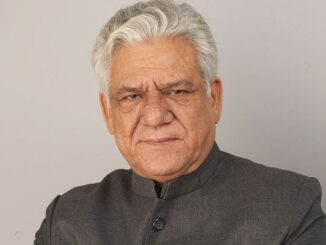
The controversy surrounding Sardaar Ji 3 continues to spiral, drawing sharp reactions from the film industry and beyond, with Punjabi singer-composer B Praak and filmmaker-activist Ashoke Pandit now adding fuel to the fire. The backlash, which stems from the casting of popular Pakistani actress Hania Aamir in the lead role opposite Diljit Dosanjh, has triggered a wave of criticism across various quarters, with emotions running high and calls for boycotts intensifying.
In a move that shocked fans and industry insiders alike, B Praak took to his social media account to voice his outrage over what he called a “disrespectful” and “irresponsible” decision by the makers of Sardaar Ji 3. Without mincing words, the acclaimed singer — known for soulful tracks like Teri Mitti and Mann Bharrya — wrote, “Fitteh Mooh Tuhade. At a time when our jawans are sacrificing their lives at the borders, you think it’s okay to glorify a cross-border collaboration? Shameful.”
B Praak’s statement instantly went viral, earning both support and criticism. While some lauded his candid stand as patriotic and gutsy, others questioned the tone of his outburst, calling it unnecessarily harsh. Still, it reflected a larger sentiment brewing within sections of the Punjabi entertainment industry that feel betrayed by what they see as an act of insensitivity on the part of Diljit and the film’s team.
Not stopping there, B Praak further elaborated during a media interaction, saying, “I have great respect for Diljit as an artist, but this time he has truly disappointed many of us. There’s a time and place for collaborations, but this is not the time. We’re not against art or artists — we’re against the context in which this decision was made.”
Adding another dimension to the growing outrage, well-known filmmaker and Indian Film & Television Directors’ Association president Ashoke Pandit also joined the discourse. Known for his outspoken views, especially on matters of national interest, Pandit called out Diljit Dosanjh in a strongly worded statement. “This is not just a creative lapse — it’s a moral one,” he said. “Casting a Pakistani actor in an Indian film at a time when India has consciously distanced itself from cross-border talent due to ongoing geopolitical tension is not only tone-deaf, it’s provocative.”
He further stated that the decision was “an insult to the sacrifices of our soldiers and their families”, and called on authorities to take a serious look into how such decisions are allowed to go forward unchecked. “What message are we sending by putting stardom before sovereignty? Artists must be socially responsible — especially those who wield such mass influence,” he said.
The Sardaar Ji 3 makers, meanwhile, have largely remained silent in the face of the criticism, with neither Diljit Dosanjh nor the production house issuing a formal response to the escalating backlash. Some unconfirmed reports suggest that the makers are now considering changes to the film’s promotional campaign in India, while others claim there are discussions underway to stall or delay its theatrical release in certain regions.
The controversy is further complicated by the fact that Diljit Dosanjh, a global icon of Punjabi music and cinema, has often taken a neutral or apolitical public stance. But with the chorus of condemnation growing louder, pressure is mounting on him to break his silence and clarify his stand.
On social media, netizens remain deeply divided. While some users trended hashtags like #BoycottSardaarJi3 and #IndiaFirst, others argued that art should remain above politics, and that not all cross-border exchanges should be seen through the lens of conflict.
The situation has sparked a broader debate about the role of artists during times of political sensitivity, and whether patriotism should be prioritized over creative freedom. This is not the first time the entertainment industry has found itself embroiled in such a controversy — previous collaborations with Pakistani talent have faced similar scrutiny post-2016, particularly after the Uri terror attack and the Pulwama incident.
As the tension surrounding Sardaar Ji 3 intensifies, all eyes are now on Diljit Dosanjh — not just as the film’s leading man, but as a public figure expected to take a stand. Whether he chooses to issue a clarification, make amends, or remain silent will likely have significant implications for both his career and the film’s fate in India.
For now, one thing is certain: Sardaar Ji 3 has become far more than a film — it’s a flashpoint in an ongoing conversation about nationalism, artistic freedom, and the complex relationship between India and its neighbor.



